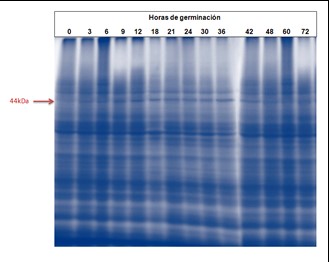Purificación Parcial y Caracterización de Alfa Amilasa de granos germinados de Chenopodium quinoa (Quinua)
DOI:
https://doi.org/10.33017/RevECIPeru2013.0007/Keywords:
Chenopodium quinoa, alpha amylase, germination, partial purificationAbstract
The alpha amylases are the enzymes most studied and important in biotechnology and industry; because they have completely replaced the starch’s chemical hydrolysis. These enzymes are essential in the food production, medicines and detergents in order to optimize processes and conserve the environment. The α-amylase can be isolated from different organisms such as plants, animals, fungi and bacteria, now a large number of bacterial α-amylases especially from genus Bacillus are commercially available and they are the most used in industry. However, the production of these do not meet industry requirements in the world, because the demand for this enzyme has increased in the last two years and the use of bacterial α-amilase has caused allergies affecting the 15% of the global population. In this study, as a source of α-amylase used the seeds from Chenopodium quinoa (quinoa). Var. white hualhuas during the germination process, this enzyme was partially purified by ammonium sulfate precipitation to obtain a final specific activity of 35.60U/mg, and a grade of purification of 5 times. The purification was confirmed by SDS-PAGE, where the molecular weight was 44kDa. The enzyme activity was evaluated by Miller method showing maximum activity at pH 7 and 37ºC. The Lineweaver-Burk linearization shows a Km of 16mg/mL and Vmax of 100μM the maltose / min. Therefore, these characterizations meet the prerequisites need for industry.


